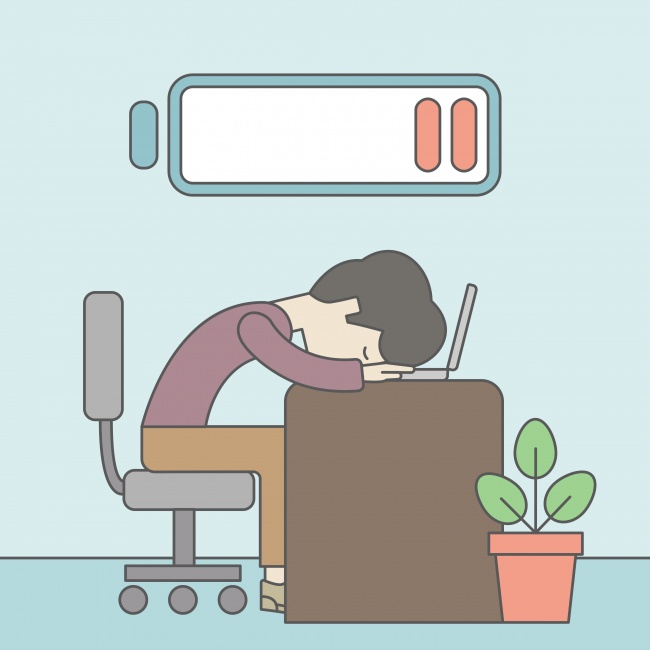For a lot of people, it is hard to resist the temptation of a nicely cooked steak or a juicy hamburger. Despite the fact that meat is full of nutrients, it also contains a number of natural chemical toxins, saturated fat, and elements that make it difficult for us to digest. Eating too much meat can lead to serious consequences from increasing the risk of diabetes to heart disease and even cancer.
Bright Side researched the signs that your digestive system isn’t processing meat well, and it’s time to reconsider your diet. Let’s see how many of these you have been experiencing.
9. Constipation
We all have different digestive systems, and they are based on our genetics and dietary habits. Depending on the cut of the meat, some are quite high in fat. Fats take more time to be digested by the body, and that’s why they can cause indigestion the next day. Constipation can be a result of the high iron that is normally found in red meats (beef, pork, or lamb). Besides, red meat is low in fiber, which is essential for regular bowel movements.
Tip: Some studies reveal that eating too much red meat can increase the chances of developing bowel cancer. Try to eat red meat only in conservative amounts (100-200 g just twice a week) with lots of vegetables or grains. Try to avoid eating liver and kidneys. Switch to seafood or chicken, and choose boiled meat over fried.
8. Constantly feeling hungry

If you feel hungry all the time even though you’ve just finished a meal, it can mean that you’ve been having too much protein. When you don’t have enough carbs, your body’s blood sugar goes down, and you don’t produce mood-regulating serotonin, the chemical that makes you feel hungry.
Tip: If you realize that you always feel hungry, try to snack on Greek yogurt with berries or hummus with wholegrain crackers instead of a sandwich for lunch. Try to cut out meat for several days, and see if you feel better and fresher.
7. Dark circles under the eyes

Don’t get tricked into assuming that dark circles under the eyes come from lack of sleep or tiredness. It turns out that not digesting meat properly can disrupt your beauty routine. If you get them a lot (especially the day after you eat meat), then it’s a sign that the meat was not digested.
The compromised gut lining allows meat particles to pass through the gut wall and right into the bloodstream undigested, and they are regarded as “foreign” invaders. The body will try to produce certain antibodies to eliminate the foreign substance, and the reaction to this can be dark circles under the eyes, a symptom which is usually overlooked by health professionals.
6. High blood pressure

If you experience high blood pressure, this can be a sign that it’s time to cut back on meat. Processed and cooked meats contain a high level of sodium because they are normally cured, seasoned, and preserved with salt. Besides, chicken skin and red meat are high in saturated fat. All these can lead to worsening hypertension and even developing coronary heart disease.
Tip: Try to lower the amount of meat you consume, switching to vegetables instead. If you can’t resist, try to switch to leaner meats and seafood as they are normally lower in fat.
5. Bad breath and body odor
Experiencing bad breath and body odor is a sign that your body is not digesting meat properly. If meat is not digested well, a smelly odor goes back out of your digestive system and eventually makes its way into your skin and breath. If you keep having these unpleasant problems, try taking digestive enzymes to assist in breaking the meat down so it doesn’t accumulate in your gut.
4. Weakened immune system

When your body doesn’t digest meat properly, you might get sick more often than usual. Your immune system can be affected because of the natural sugar (called Neu5Gc) found in red meat, and it is very hard for our bodies to digest. This sugar is normally produced by carnivorous animals and allows them to sustain their meat diets. Our bodies do not produce it, and that’s why we treat it as a foreign substance, which sets off a toxic immune reaction. This reaction can cause a lot of other problems, with cancer being the most serious.
Tip: Try to have more nutritious food like quinoa, nuts, green vegetables, and fruit. They provide essential antioxidants, fiber, and protein, and they ensure that all your macro and micronutrient needs are met. So if you have to eat meat, be sure to balance it with the healthy foods listed above as a side dish or a salad. Don’t forget to include some exercise and enough vitamin D to support your immune system.
3. Fatigue

If after eating meat you start to feel very sluggish or tired, don’t brush it off as normal behavior. It means that your body isn’t digesting the meat, and it is simply stuck in your bowels. When it’s stuck, it diverts all your energy to your digestive system. Also, if you feel like you are carrying something like a brick in your gut for days after eating meat, it’s time to switch completely to something green and fresh — fruit, fresh smoothies, and raw vegetables.
2. Nausea
Nausea is a common symptom of not digesting meat well as it can be a reaction to certain bacteria in meat. Some pregnant women find that eating meat causes them to feel extremely nauseous. It could also simply be that something (perhaps an overworked organ) in your body is rejecting meat.
Tip: If switching to salad doesn’t help and you feel nauseous or experience cramps between 4 to 26 hours after you eat meat, you should see a doctor immediately.
1. Bloating
Meat products are one of the most difficult foods for the human body to digest because the protein contained in meat (especially red meat) is harder for us to break down, and this can cause bloating. Large amounts of fatty foods like meat make your stomach empty slower, which also causes bloating or discomfort. Improper digestion of meat can lead to the accumulation of toxins in the body.
Tip: Instead of going for a steak, go for fish or chicken. These animal products are easier for us to digest. Always have vegetables (steamed or raw) as a side dish or a salad. If you stop eating meat, you will most likely get rid of bloating for good.
source: https://brightside.me/inspiration-health




